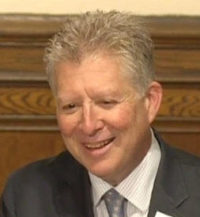Continuing Education Grows Up: Alumni Can Be Students Again
- May 17, 2018
- Andrew Lipka
- 4 min reading
- 3 min, read
Kathy Edersheim has rightfully drawn our attention to alumni education as a “new paradigm” for engagement. As various models for exploring this opportunity have been explored, important insights have emerged. Two programs at Yale University have demonstrated that a seminar-based, more intensive approach can produce unprecedented levels of alumni satisfaction and connection..
The vast majority of university educational offerings to alumni employ a “passive” learning approach. Lectures at reunions, Panel Discussions at symposia, and even online materials, all present material from “on high.” The alumni are essentially observers of the University and its academic content – admiring it, even enjoying it, but hardly participants in it. Educational travel programs can bring alumni in social contact with faculty, but even in these cases, the emphasis is generally on the travel, with the formal academic instruction usually taking the form of lectures as well.
The emphasis on active learning has exponentially increased the level of alumni joy and engagement in these programs.
Models of Success
Two programs administered through Yale: Yale for Life, and Yale Alumni College, have used a different model. In both programs, seminar instruction is offered, with reading and preparation expected, putting engaged, active discussion at the heart of the experience. Alumni participate actively in their own learning, and extend the experience both before the program (in preparation), as well as afterwards – as a new community of lifelong learners.
The more intense program, Yale for Life, sees alumni return to the institution for a week or longer of on-campus living and learning. The college experience is reinvented, with university housing, dining, library, classroom, and other facilities employed for their intended purpose – now extended to the education of alumni. Alumni read extensively in preparation; registration takes place months ahead of the program to allow adequate time for the assignments. At the program, all-day seminars are combined with events at on-campus facilities such as museums and collections, again utilizing the treasures of the institution for their intended – now enlarged – purpose. A team of faculty teach throughout the week, and also join the alumni for meals and other activities.
Yale Alumni College brings continuing education to a broader audience. It takes place at improvised “campuses” in major cities. Here, alumni enjoy 6-8 week seminar courses, generally meeting once a week, usually with a faculty member who is a graduate of the parent institution. Reading is assigned in modest amount such as a novel over two weeks. An academically-related “outing” takes place once per semester which further develops the alumni community.
Engaged Alumni
The emphasis on active learning has exponentially increased the level of alumni joy and engagement in these programs. Even at the opening of a course, shared acceptance of the challenge of the readings gives a sense of fellowship and commonality to the participants. By engaging in lively exchanges with faculty rather than simply inhaling their offerings, understanding is deepened, and, a sense of pride and validation conveyed. Faculty, too, find the experience of engaging with alumni who are essentially their peers a uniquely gratifying experience. The connection among institution, faculty, and alumni is made with far greater mutuality.
A community of lifelong learners emerges from these models. At Yale for Life, a Google Group is now in its eighth year, with hundreds of alumni and faculty who have attended one or more Yale for Life programs participating daily in conversations about the subjects they studied together, discussing the institution in general, their lives, and issues of the day. The “touch” of the program extends beyond the dates at Yale, producing alumni engaged with their institution not only in a nostalgic way, but as an ongoing source of value in their lives.
Liberal Arts for Learners
The active, seminar model has particular appeal for older alumni, who have the time and curiosity (and often, the financial resources) for this type of immersion. Alumni established in their career or retired do not have the same need for immediate “usefulness” of material they study, and frequently are more interested in the act of learning than a particular skill they may acquire. Younger alumni may need to learn coding or new tax law, and wish to attack it directly rather than read or discuss various interpretations of it; an older scholar, on the other hand, may see more value in immersion in the life of the mind.
The liberal arts college or university often asks its undergraduates to put aside vocational considerations and turn to perhaps more lofty matters of critical thinking, close reading, and fundamental questions – to “get smarter,” as it were; to think of bigger issues. The idea of returning to these questions, perhaps in the physical and spiritual home on campus, and with the guidance of esteemed academics, is immensely appealing to many alumni. This model has, as implemented in these and other programs, shown the potential to satisfy these needs and produce alumni engagement on the highest level.
In future blog posts I hope to return to various aspects of these and other programs and examine how choices made in executing them can enhance these goals.


This Post Has 2 Comments
Andrew – are there suggestions for a two year college to offer similar programming, or offerings for our retirees?
Continuing education is an important component of alumni engagement for all educational institutions including two year programs. Let’s connect directly to discuss the model that might work for you.